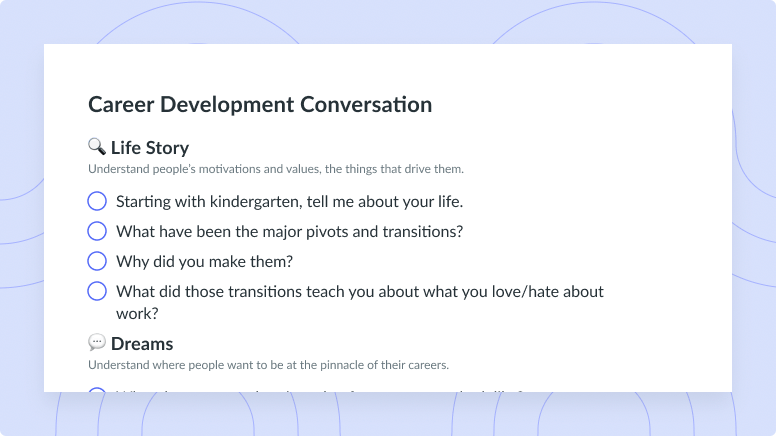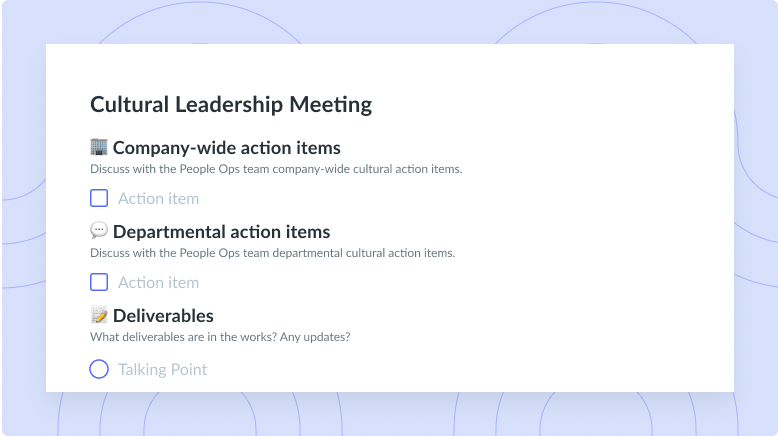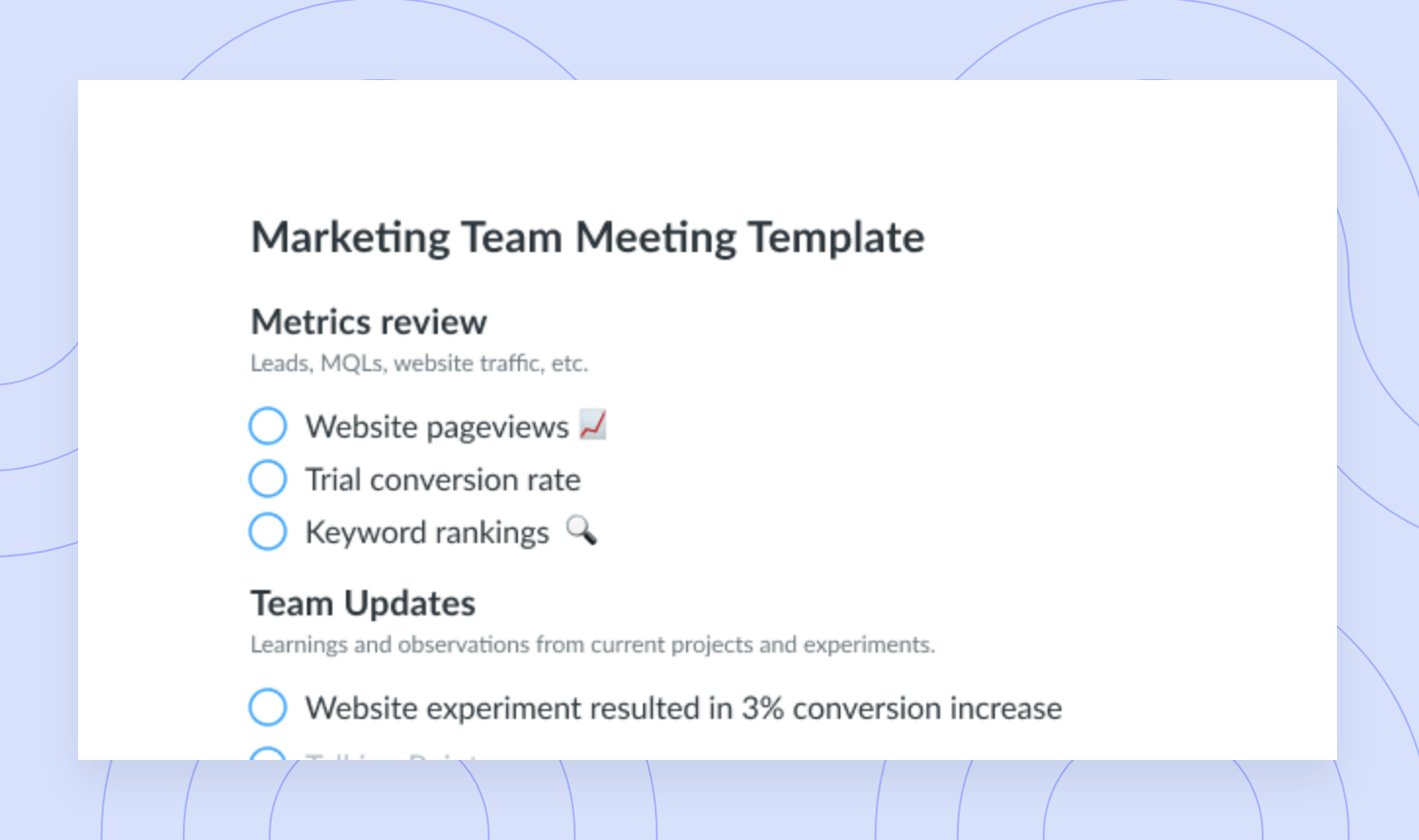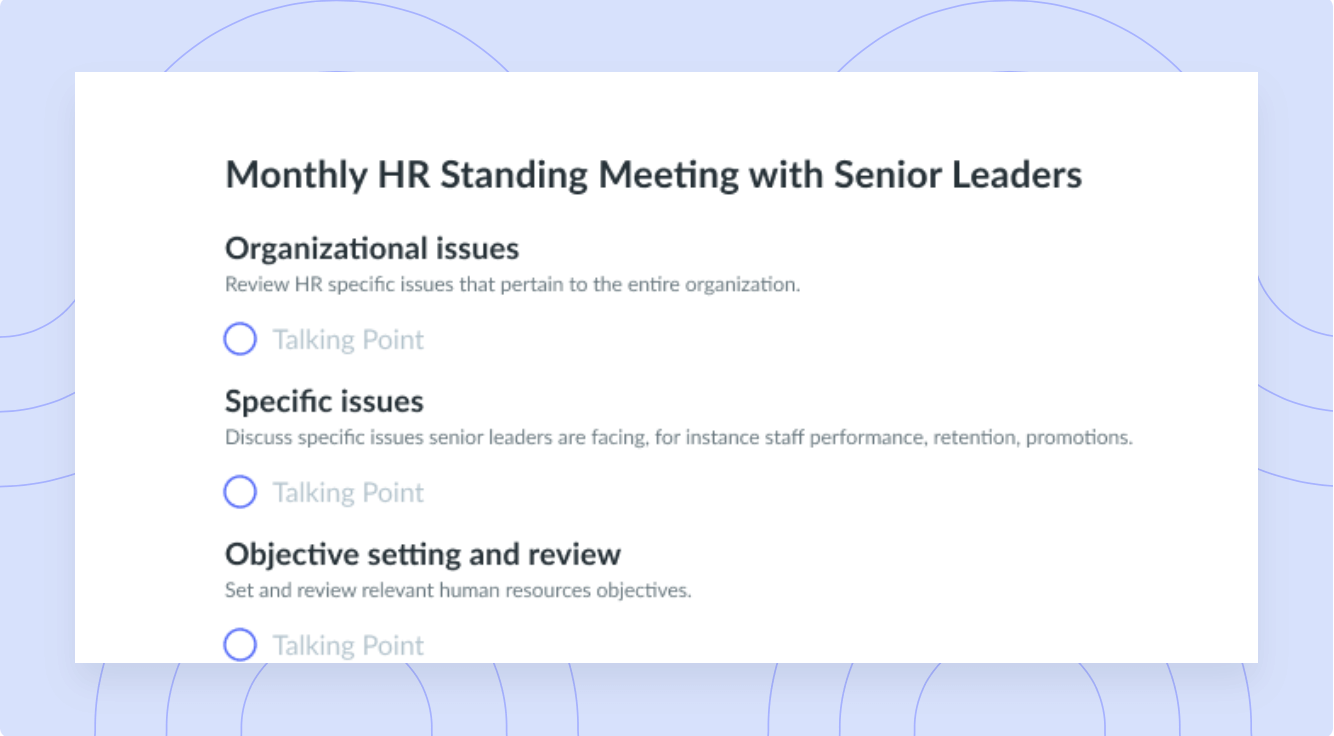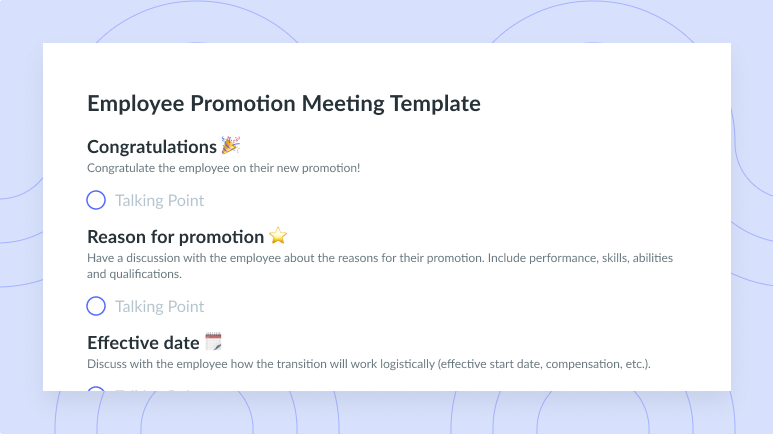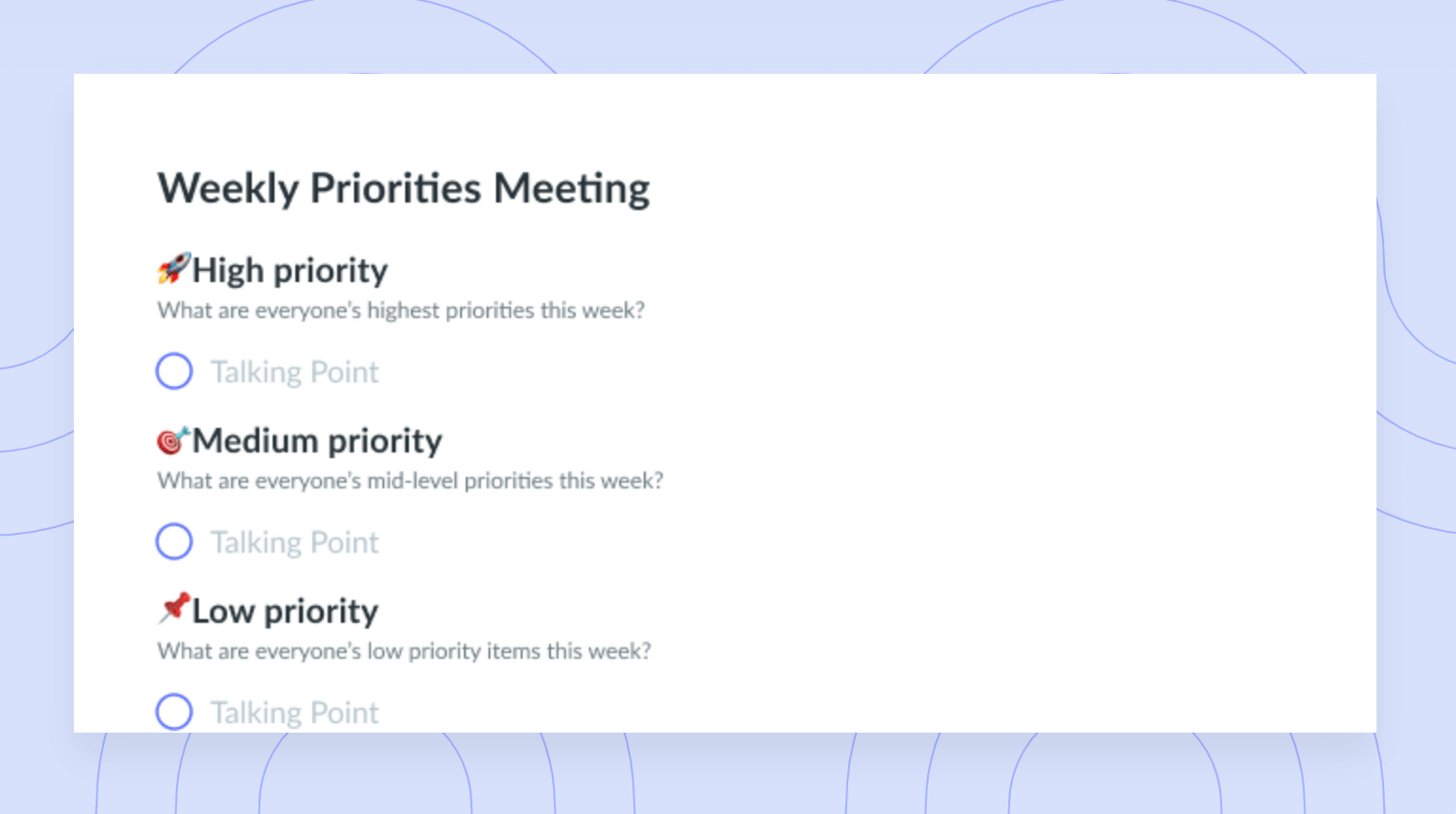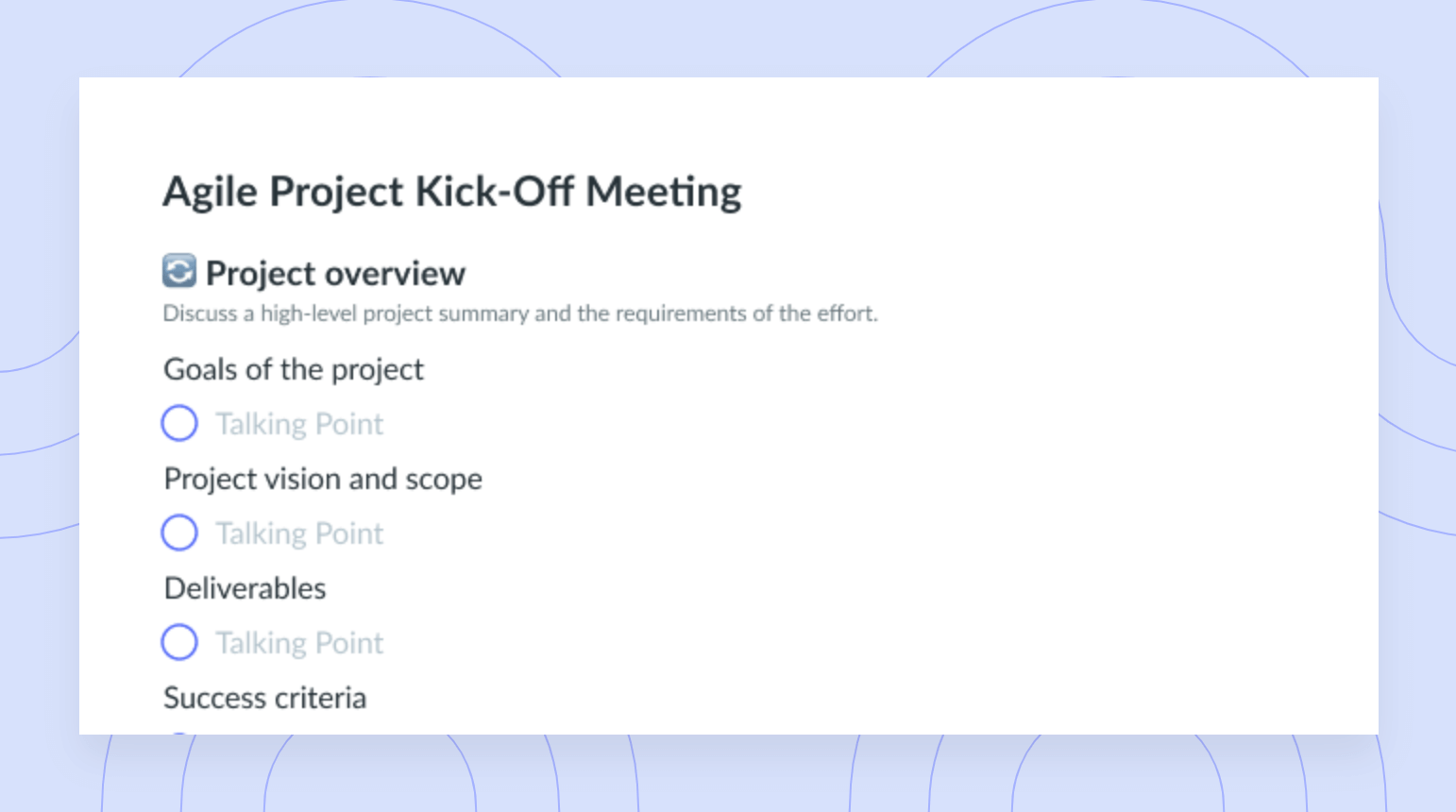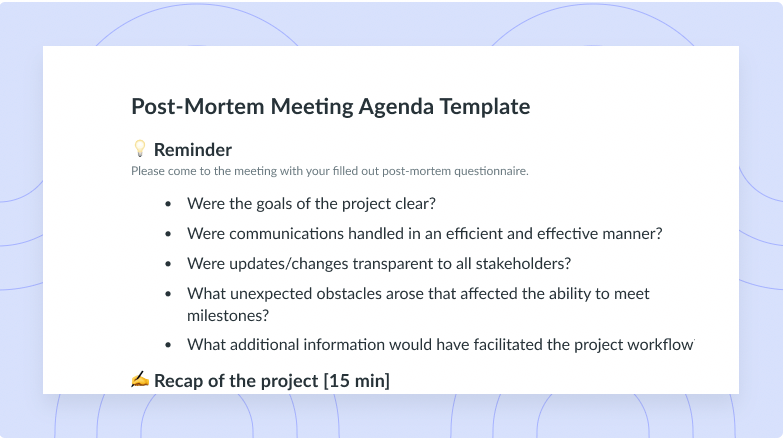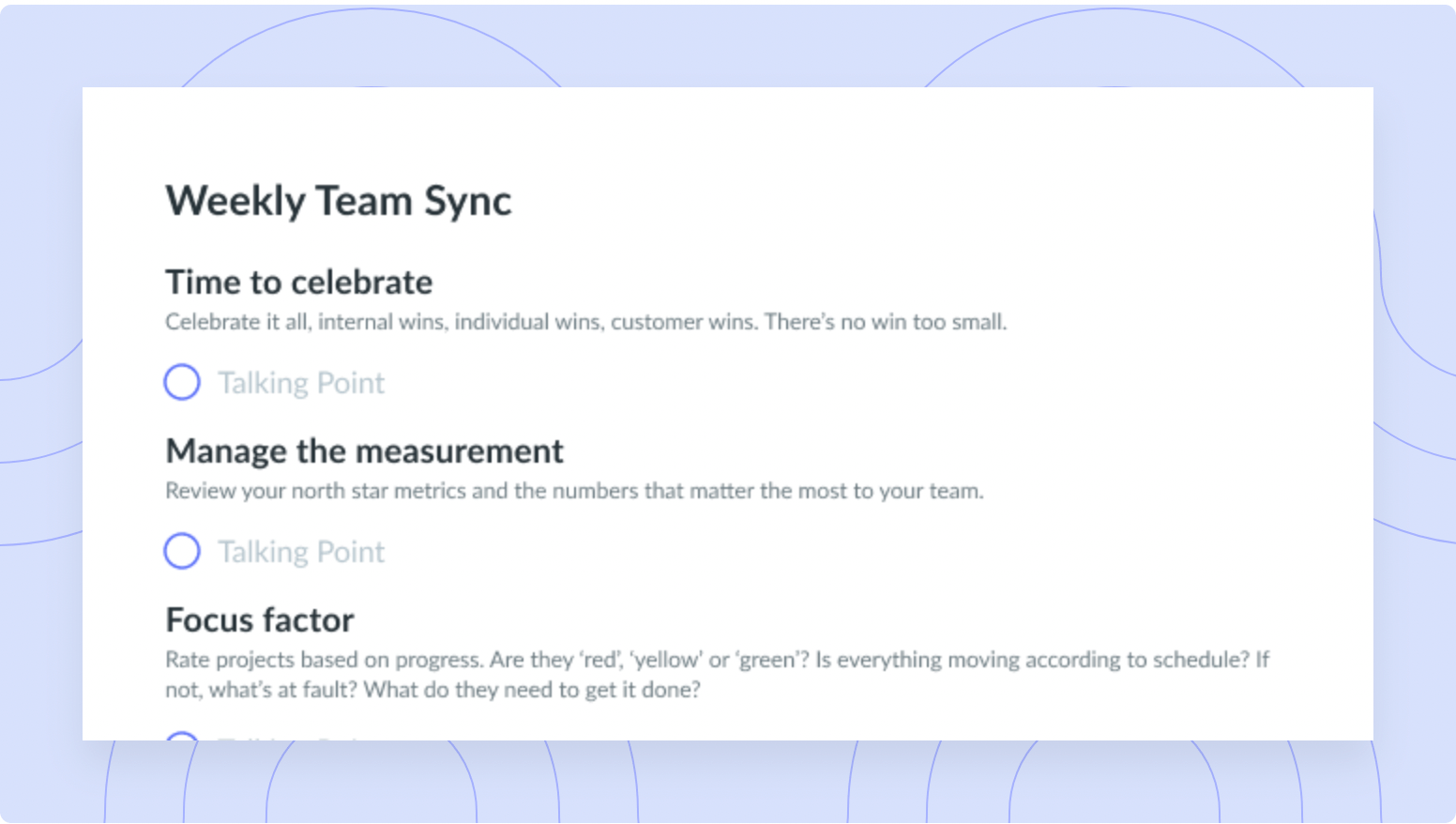Performance Prediction: Can You Actually Predict Future Job Performance?
We’re here to bridge the gap between management and science and tell you that you can predict future employee performance. By doing so, you’ll increase your workforce’s overall productivity and effectiveness.
Every company has their own recruitment and hiring process, which is soon turned into a performance management practice, once an employee is fully hired. While you may think that education level and previous experience may be the most important performance predictors, this isn’t true.
It turns out that there are psychological tests and tools that have been tested and tried and have supported the notion that we can predict future job performance. So, if we have the tools to predict future job performance, why isn’t every avant-garde organization using them?
There is strong predictive validity (the effectiveness of research results as a predictor of the future outcomes) that you can predict future performances at work, job-related learning, and other attractive attributes of a valuable employee. If companies were to use psychological tests to hire, these organisations would see an increase in performance, which can be tracked and measured by looking at the percentage of increased work output, increased monetary value of output, and increased learning of job-related skills.
The science behind performance prediction has highlighted the importance of selecting the right individual for the job, and the value of utilizing effective tools for recruitment. Because this information is really interesting and highly valuable for leaders to incorporate into their performance management processes, this article will discuss what employee performance prediction is, why it is valuable knowledge and discuss the best predictors of future job performances.
- What is Employee Performance Prediction?
- What are the Best Predictors of Job Performance?
- Potential for the Future of Recruitment
What is Employee Performance Prediction?
Employee performance prediction is exactly what it sounds like: A means to foresee future employee job performance. Is this real? Is this possible? Absolutely.
Scientific research from the last 100 years has proven that by implementing hiring tools that work, and avoiding those that don’t, companies can increase the productiveness, work output, and learning ability of their teams.
A substantial amount of research points to the fact that tests of personality and of cognitive ability are some of the most effective predictors of employee performances.
Unfortunately, there seems to be a large gap between business practices and proven, psychological research. Unlike performance prediction tools that have been trialed and tested, employers tend to evaluate education level, prior work experiences, training and community involvement as recruitment methods, which do not provide accurate predictive outcomes and leave the selection process down to chance, which isn’t ideal.
In fact, sections that employers may focus a lot of attention on such as interests and amount of education, have extremely low validity in predicting future job performances
What are the Best Predictors of Job Performance?
Based on thousands of studies across several different domains, the most effective means for selecting top performing employees are to test for candidates cognitive ability (intelligence) and personality traits.
Psychometric tests of intelligence and personality are the two main types of testing for the prediction of performance differences amongst the “normal” range of psychological characteristics that we all carry.
The fundamental goal of these cognitive and personality tests are to predict employee performances, based on psychological characteristics .
1 Tests of Cognitive Ability
Cognitive ability, which is also referred to as general mental ability (GMA), intelligence, or IQ, is one of the best (if not the best) predictors of employee performance. An individual’s cognitive ability encompasses their ability to process information, reason, plan and control their own behaviour.
The best part about tests of cognitive ability is that their ability to predict performance has been supported in thousands of studies, which allows professionals administering these tests to be confident in their results. Actually, the general factor of these tests of intelligence can predict future performances even better than aptitude tests, which claim to evaluate specific skill sets, for a specific job within a company.
Researchers claim that there is no basis for questioning the link between cognitive ability and job performance based on the magnitude of research and its meaningful findings
Moreover, intelligence is a predictor that is valid and predictively unbiased for majority and minority groups, making these tests applicable and valuable to our diverse workforces.
The Ability to Acquire Knowledge
What part of cognitive ability actually predicts job performance? It seems that the major impact of cognition that predicts star performers is the ability to efficiently acquire knowledge of the job.
Basically, this means that the more intelligent you are (the higher you score on these cognitive ability tests), the faster you acquire and retain job knowledge, which outputs a higher job performance.
Not only do intelligence tests measure job performance, but pretty much all other major life outcomes, such as school performance and academic achievement, occupational level, income, ability to adjust, delinquent behaviour, poverty and divorce to name a few.
This means that when you test for cognitive ability, while you are evaluating intelligence, you are also evaluating how well-rounded this person is in general and how well this individual may fit in with the rest of the team and the way in which you conduct your business.
2 Tests of Personality
While testing for cognitive ability is the most important predictor for future job performance, the second most important is testing an individual’s personality.
Specifically, it is the widely accepted five-factor model of personality that is evaluated, looking at dimensions of Neuroticism (emotional stability vs. emotional instability), Extraversion, Openness, Agreeableness, and Conscientiousness.
These categorizations of personality have demonstrated strong cross-cultural reliability, which is valuable as we attempt to attract and retain a diverse workforce. Because of the high reliability noted in tests of personality and specifically the five-factor model of personality, we can feel confident in the notion that personality is useful to assess organizational settings.
Moreover, you can identify which personality traits may be the most important to your team and to your organization as a whole, before assessing applicants results, so that you can find the best fit.
Conscientiousness
Of the “big five” personality, the one that has been observed the most heavily in models of employee performance is conscientiousness.
Research shows that individuals who are highly conscientious tend to acquire higher levels of job knowledge, which causes higher levels of job performance, typically because they exert greater efforts and spend more time on their responsibilities.
It’s clear that if you’re hiring you’ll want highly conscientious individuals because they are more mindful of their actions and consequences of their behaviour.
If you are highly conscientious, you are likely to be ambitious, hard working, responsible, punctual and well- organized.
Emotional Stability
Other than conscientiousness, in evaluating performance, it seems that employers seek job candidates with high emotional stability, high extraversion, high openness to experience and of agreeableness.
That being said, just because these are the personality traits that are the most sought after, it doesn’t mean that individuals that are introverted, for example, won’t be a good fit for the job.
This truly depends on the nature of the work, the team dynamic and the company culture.
3 Limitations in Performance Prediction
If assessing for cognitive ability and personality were completely straight-forward, I hope we’d all be doing it. The truth is though, alike any other methods of recruitment, these tests do have some limitations that are worth mentioning. While both intelligence and personality are highly reliable and valid measures of predicting job performance, the evaluation of these traits is somewhat limited because they rely on self-reported responses.
We’d all like to think that most people are honest with their answers, although there is still some space to doubt this notion. That being said, in especially competitive circumstances, there might be some motivation for individuals to present themselves in a particular manner (likely in a more positive light), knowing the requirements for the job.
Although these tests might be vulnerable to response distortion, sooner or later, it will be obvious to the employer if the candidates’ responses are reflective of their future performance.
Potential for the Future of Recruitment
Science has proven time and time again that you can identify top performers by administering cognitive ability and personality tests.
While our social environments have taught us to look at educational backgrounds and volunteer experiences, scientifically, these are bad predictors of behaviour.
Implementing these psychological tests into your recruiting process will not only help you identify the best talent but it will also help you screen out candidates that are unfit for the position.
There are significant consequences of choosing unfit job candidates because this inevitably leads to higher turnover rates, recruitment costs, training expenses and not to mention the lost productivity from spending substantial amounts of time mediating issues and confronting a diminished team morale.
The time, money and emotional damage are certainly reason enough to engage in hiring processes that are based on empirical research and that give you the highest chances of identifying and retaining top talent.
References:
- Costa, P. T., & McCrae, R. R. (1992). The Five-Factor Model of Personality and it’s Relevance to Personality Disorders. Journal of Personality Disorders, 6(4), 343–359.
- Higgins, D. M., Peterson, J. B., Pihl, R. O., & Lee, A. G. M. (2007). Prefrontal Cognitive Ability, Intelligence, Big Five Personality, and the Prediction of Advanced Academic and Workplace Performance. Journal of Personality and Social Psychology, 93(2), 298 –319. https://doi.org/10.1037/0022-3514.93.2.298
- Hirsch, J. B. (2009). Choosing the right tools to find the right people. The Psychologist, 22(9), 730–735.
- Mumford, M. D., Connelly, M. S., Helton, W. B., Van Doorn, J. R., & Osburn, H. K. (2002). Alternative Approaches for Measuring Values: Direct and Indirect Assessments in Performance Prediction. Journal of Vocational Behavior, 61(2), 348–373. https://doi.org/10.1006/jvbe.2001.1860
- Schmidt, F. L. (2002). The Role of General Cognitive Ability and Job Performance: Why There Cannot Be a Debate. Human Performance, 15(1–2), 187–210. http://dx.doi.org/10.1080/08959285.2002.9668091
- Schmidt, F. L., & Hunter, J. E. (1998). The Validity and Utility of Selection Methods in Personnel Psychology: Practical and Theoretical Implications of 85 Years of Research Findings. Psychological Bulletin, 124(2), 262–274.






![How to Create a Team Agreement [+3 Examples]](https://fellow.app/wp-content/uploads/2023/05/team-agreement2.jpg)


